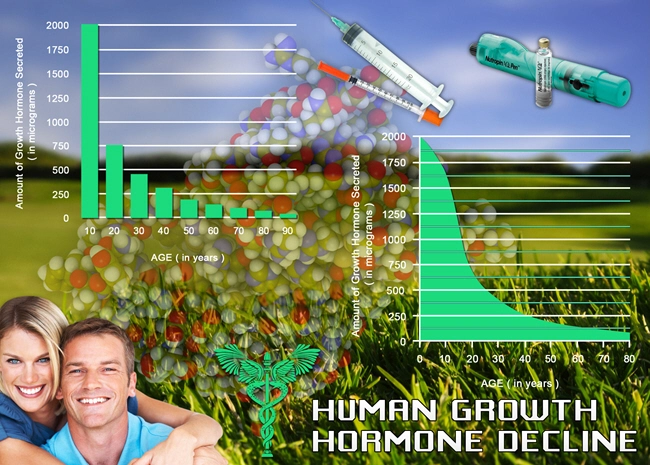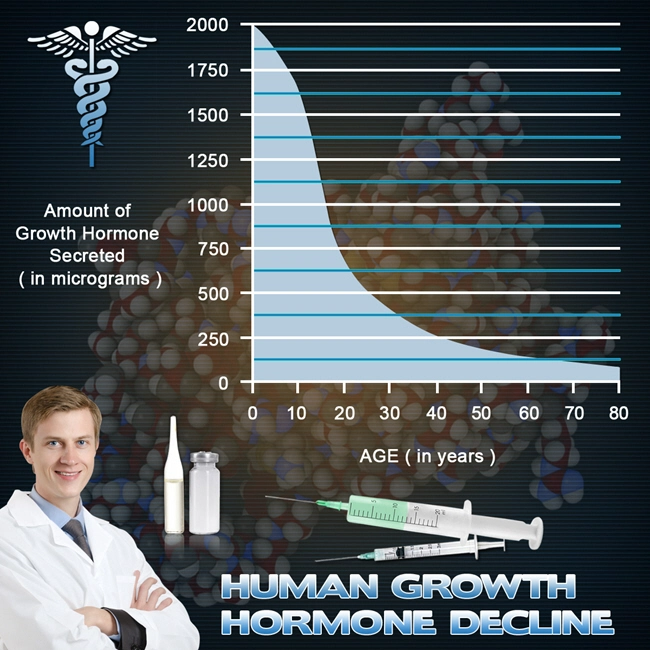
Introduction
Primary hypogonadism, characterized by the failure of the testes to produce adequate levels of testosterone, has been increasingly recognized as a significant health concern among American males. Recent research has begun to explore the broader implications of this condition, particularly its potential effects on metabolic health, including blood sugar regulation and diabetes risk. This article delves into a comprehensive cross-sectional study involving over 5,000 cases, shedding light on the relationship between primary hypogonadism, glycemic control, and the heightened risk of developing diabetes among American men.
Understanding Primary Hypogonadism
Primary hypogonadism is a condition where the testes fail to function properly due to intrinsic problems, leading to decreased testosterone production. This hormonal imbalance can manifest in various symptoms, including reduced libido, erectile dysfunction, decreased muscle mass, and increased body fat. Beyond these well-known effects, recent studies have begun to uncover its influence on metabolic processes, specifically the regulation of blood glucose levels.
Study Methodology and Demographics
The study in question analyzed data from over 5,000 American males diagnosed with primary hypogonadism. Participants were selected from a diverse range of ethnic backgrounds and socioeconomic statuses to ensure a comprehensive understanding of the condition's impact across different demographics. Blood samples, medical histories, and lifestyle questionnaires were utilized to assess testosterone levels, blood sugar levels, and the presence of diabetes or pre-diabetic conditions.
Findings on Blood Sugar Levels and Diabetes Risk
The results of the study were striking. Men with primary hypogonadism exhibited significantly higher levels of fasting blood glucose and HbA1c, markers indicative of impaired glycemic control. Moreover, the prevalence of diabetes was notably higher among these men compared to the general population. Statistical analysis revealed a clear correlation between lower testosterone levels and increased blood sugar levels, suggesting that primary hypogonadism may directly contribute to the development of diabetes.
Mechanisms Linking Hypogonadism to Diabetes
Several mechanisms have been proposed to explain the link between primary hypogonadism and diabetes. Testosterone is known to influence insulin sensitivity and glucose metabolism. Reduced levels of this hormone can lead to insulin resistance, a key factor in the development of type 2 diabetes. Additionally, the increase in body fat associated with hypogonadism can further exacerbate insulin resistance and contribute to metabolic syndrome, a cluster of conditions that increase the risk of diabetes.
Implications for Clinical Practice
These findings have significant implications for the management of primary hypogonadism in American males. Healthcare providers should be vigilant in monitoring blood sugar levels in patients diagnosed with this condition. Early detection and management of impaired glycemic control can prevent the progression to diabetes. Furthermore, testosterone replacement therapy, when appropriately administered, may offer a dual benefit by addressing both the symptoms of hypogonadism and the metabolic disturbances that increase diabetes risk.
Conclusion
The cross-sectional study of over 5,000 American males with primary hypogonadism provides compelling evidence of the condition's impact on blood sugar levels and diabetes risk. As the prevalence of hypogonadism continues to rise, it is crucial for healthcare professionals to recognize its broader metabolic implications. By integrating this knowledge into clinical practice, we can improve the overall health outcomes for American men affected by this condition, potentially reducing the incidence of diabetes and enhancing their quality of life.
Contact Us Today For A Free Consultation
Dear Patient,
Once you have completing the above contact form, for security purposes and confirmation, please confirm your information by calling us.
Please call now: 1-800-380-5339.
Welcoming You To Our Clinic, Professor Tom Henderson.

- 0001) Primary Hypogonadism: Understanding, Overcoming Stigma, and Effective Treatment in American Males [Last Updated On: February 26th, 2025] [Originally Added On: February 26th, 2025]
- 0002) Primary Hypogonadism and Diabetes: Dual Challenges and Integrated Management in Men's Health [Last Updated On: March 18th, 2025] [Originally Added On: March 18th, 2025]
- 0003) Primary Hypogonadism and Obesity Link in American Males: Hormonal and Metabolic Insights [Last Updated On: March 18th, 2025] [Originally Added On: March 18th, 2025]
- 0004) Primary Hypogonadism in American Men: Medical Treatment and Vital Support Networks [Last Updated On: March 18th, 2025] [Originally Added On: March 18th, 2025]
- 0005) Primary Hypogonadism: Impacts, Diagnosis, and Treatment Options for American Men [Last Updated On: March 18th, 2025] [Originally Added On: March 18th, 2025]
- 0006) Primary Hypogonadism: Innovative Treatments and Hope for American Males [Last Updated On: March 19th, 2025] [Originally Added On: March 19th, 2025]
- 0007) Emotional Journey of Primary Hypogonadism in American Males: Challenges and Support [Last Updated On: March 19th, 2025] [Originally Added On: March 19th, 2025]
- 0008) Exercise Strategies for Managing Primary Hypogonadism in American Males [Last Updated On: March 20th, 2025] [Originally Added On: March 20th, 2025]
- 0009) Diet and Nutrition's Role in Managing Primary Hypogonadism in American Males [Last Updated On: March 20th, 2025] [Originally Added On: March 20th, 2025]
- 0010) Primary Hypogonadism: Causes, Symptoms, and Management in Aging American Men [Last Updated On: March 21st, 2025] [Originally Added On: March 21st, 2025]
- 0011) Primary Hypogonadism's Impact on Muscle Mass in American Males: Insights and Interventions [Last Updated On: March 21st, 2025] [Originally Added On: March 21st, 2025]
- 0012) Financial Burden of Primary Hypogonadism on American Men: Costs, Coverage, and Coping Strategies [Last Updated On: March 22nd, 2025] [Originally Added On: March 22nd, 2025]
- 0013) Managing Primary Hypogonadism: Navigating Diagnosis, Treatment, and Healthcare in America [Last Updated On: March 22nd, 2025] [Originally Added On: March 22nd, 2025]
- 0014) Primary Hypogonadism in American Men: Advocacy, Diagnosis, and Treatment Strategies [Last Updated On: March 22nd, 2025] [Originally Added On: March 22nd, 2025]
- 0015) Primary Hypogonadism: Impact on Work and Management Strategies for American Men [Last Updated On: March 22nd, 2025] [Originally Added On: March 22nd, 2025]
- 0016) Exploring Primary Hypogonadism: Current Treatments and Future Innovations for American Males [Last Updated On: March 22nd, 2025] [Originally Added On: March 22nd, 2025]
- 0017) Primary Hypogonadism in American Men: Holistic Management and Quality of Life Improvement [Last Updated On: March 23rd, 2025] [Originally Added On: March 23rd, 2025]
- 0018) Primary Hypogonadism: Long-term Effects and Management in American Males [Last Updated On: March 23rd, 2025] [Originally Added On: March 23rd, 2025]
- 0019) Primary Hypogonadism: Causes, Impacts, and Treatment Options for American Men [Last Updated On: March 23rd, 2025] [Originally Added On: March 23rd, 2025]
- 0020) Primary Hypogonadism: Understanding, Diagnosing, and Treating Low Testosterone in American Males [Last Updated On: March 24th, 2025] [Originally Added On: March 24th, 2025]
- 0021) Managing Primary Hypogonadism: Testosterone's Role and Treatment in American Men [Last Updated On: March 24th, 2025] [Originally Added On: March 24th, 2025]
- 0022) Diagnosing Primary Hypogonadism: Symptoms, Testing, and Treatment Journey for American Men [Last Updated On: March 24th, 2025] [Originally Added On: March 24th, 2025]
- 0023) Primary Hypogonadism and Sleep: Impacts and Interventions for American Men [Last Updated On: March 24th, 2025] [Originally Added On: March 24th, 2025]
- 0024) Genetic Testing for Primary Hypogonadism: Diagnosis and Management in American Males [Last Updated On: March 24th, 2025] [Originally Added On: March 24th, 2025]
- 0025) Primary Hypogonadism: Causes, Treatment, and Management for American Men [Last Updated On: March 24th, 2025] [Originally Added On: March 24th, 2025]
- 0026) Primary Hypogonadism's Impact on Physical Activity in American Males [Last Updated On: March 25th, 2025] [Originally Added On: March 25th, 2025]
- 0027) Challenges in Diagnosing Primary Hypogonadism in American Males: Symptoms, Testing, and Stigma [Last Updated On: March 25th, 2025] [Originally Added On: March 25th, 2025]
- 0028) Primary Hypogonadism in American Men: Symptoms, Diagnosis, and Mental Health Support [Last Updated On: March 25th, 2025] [Originally Added On: March 25th, 2025]
- 0029) Primary Hypogonadism: Challenges, Resilience, and Thriving Strategies for American Males [Last Updated On: March 25th, 2025] [Originally Added On: March 25th, 2025]
- 0030) Primary Hypogonadism: Symptoms, Treatment, and the Vital Role of Peer Support [Last Updated On: March 25th, 2025] [Originally Added On: March 25th, 2025]
- 0031) Primary Hypogonadism: Understanding Treatments and Managing Side Effects in American Males [Last Updated On: March 25th, 2025] [Originally Added On: March 25th, 2025]
- 0032) Primary Hypogonadism: Social Impacts and Navigating Life in American Men [Last Updated On: March 25th, 2025] [Originally Added On: March 25th, 2025]
- 0033) Managing Primary Hypogonadism: Importance of Regular Check-ups for American Males [Last Updated On: March 26th, 2025] [Originally Added On: March 26th, 2025]
- 0034) Primary Hypogonadism: Impact on Self-Esteem and Holistic Management Strategies [Last Updated On: March 26th, 2025] [Originally Added On: March 26th, 2025]
- 0035) Nutritionists' Vital Role in Managing Primary Hypogonadism in American Males [Last Updated On: March 26th, 2025] [Originally Added On: March 26th, 2025]
- 0036) Managing Primary Hypogonadism: Diagnosis, Treatment, and Lifestyle Strategies [Last Updated On: March 26th, 2025] [Originally Added On: March 26th, 2025]
- 0037) Primary Hypogonadism: Impact on Body Image and Holistic Treatment Approaches [Last Updated On: March 26th, 2025] [Originally Added On: March 26th, 2025]
- 0038) Primary Hypogonadism in American Males: Diagnosis, Treatment, and Lifestyle Management [Last Updated On: March 26th, 2025] [Originally Added On: March 26th, 2025]
- 0039) Primary Hypogonadism: Emotional Impacts and Management Strategies for American Males [Last Updated On: March 26th, 2025] [Originally Added On: March 26th, 2025]
- 0040) Primary Hypogonadism in American Men: The Vital Role of Community Support [Last Updated On: March 26th, 2025] [Originally Added On: March 26th, 2025]
- 0041) Primary Hypogonadism's Impact on Career Aspirations in American Males [Last Updated On: March 27th, 2025] [Originally Added On: March 27th, 2025]
- 0042) Primary Hypogonadism: Symptoms, Diagnosis, and Management in American Men [Last Updated On: March 27th, 2025] [Originally Added On: March 27th, 2025]
- 0043) Primary Hypogonadism: Advocating for Research and Awareness in American Men [Last Updated On: March 27th, 2025] [Originally Added On: March 27th, 2025]
- 0044) Primary Hypogonadism: Understanding, Managing, and Educating American Males [Last Updated On: March 27th, 2025] [Originally Added On: March 27th, 2025]
- 0045) Primary Hypogonadism: Symptoms, Diagnosis, Treatment, and Healthcare Navigation in the U.S. [Last Updated On: March 27th, 2025] [Originally Added On: March 27th, 2025]
- 0046) Family Support Crucial for Managing Primary Hypogonadism in American Males [Last Updated On: March 27th, 2025] [Originally Added On: March 27th, 2025]
- 0047) Primary Hypogonadism: Diagnosis, Specialist Care, and Treatment for American Men [Last Updated On: March 28th, 2025] [Originally Added On: March 28th, 2025]
- 0048) Primary Hypogonadism: Impact, Diagnosis, and Treatment for American Men's Health [Last Updated On: March 28th, 2025] [Originally Added On: March 28th, 2025]
- 0049) Primary Hypogonadism: Emotional Support Needs and Comprehensive Care for American Men [Last Updated On: March 29th, 2025] [Originally Added On: March 29th, 2025]
- 0050) Exercise Physiologists' Vital Role in Managing Primary Hypogonadism in American Males [Last Updated On: March 30th, 2025] [Originally Added On: March 30th, 2025]
- 0051) Managing Primary Hypogonadism: Stress, Anxiety, and Holistic Health Strategies for Men [Last Updated On: March 30th, 2025] [Originally Added On: March 30th, 2025]
- 0052) Primary Hypogonadism: Impacts on Male Fertility and Family Planning in America [Last Updated On: March 30th, 2025] [Originally Added On: March 30th, 2025]
- 0053) Managing Primary Hypogonadism: Importance of Continuous Monitoring and Early Diagnosis [Last Updated On: March 31st, 2025] [Originally Added On: March 31st, 2025]
- 0054) Managing Primary Hypogonadism: Diet, Exercise, Sleep, and Lifestyle Strategies for American Men [Last Updated On: March 31st, 2025] [Originally Added On: March 31st, 2025]
- 0055) Overcoming Psychological Barriers to Treating Primary Hypogonadism in American Males [Last Updated On: April 1st, 2025] [Originally Added On: April 1st, 2025]
- 0056) Primary Hypogonadism in American Males: Diagnosis, Treatment, and Endocrinologist's Role [Last Updated On: April 5th, 2025] [Originally Added On: April 5th, 2025]
- 0057) Primary Hypogonadism: Impacts and Interventions for American Males' Social Life [Last Updated On: April 5th, 2025] [Originally Added On: April 5th, 2025]
- 0058) Financial Assistance Options for American Men with Primary Hypogonadism [Last Updated On: April 6th, 2025] [Originally Added On: April 6th, 2025]
- 0059) Primary Hypogonadism in American Males: Importance of Patient Education for Better Outcomes [Last Updated On: April 7th, 2025] [Originally Added On: April 7th, 2025]
- 0060) Managing Primary Hypogonadism: Symptoms, Diagnosis, and Treatment in American Men [Last Updated On: April 7th, 2025] [Originally Added On: April 7th, 2025]
- 0061) Primary Hypogonadism in American Men: Symptoms, Diagnosis, and Treatment Options [Last Updated On: April 9th, 2025] [Originally Added On: April 9th, 2025]
- 0062) Support Groups: Vital for American Males with Primary Hypogonadism [Last Updated On: April 9th, 2025] [Originally Added On: April 9th, 2025]
- 0063) Primary Hypogonadism: Challenges and Strategies for Enhancing Treatment Adherence in American Males [Last Updated On: April 10th, 2025] [Originally Added On: April 10th, 2025]
- 0064) Technology's Role in Managing Primary Hypogonadism: Wearables, Telemedicine, and Advanced Diagnostics [Last Updated On: April 10th, 2025] [Originally Added On: April 10th, 2025]
- 0065) Managing Primary Hypogonadism: A Multidisciplinary Approach for American Men [Last Updated On: April 11th, 2025] [Originally Added On: April 11th, 2025]
- 0066) Primary Hypogonadism: Challenges and Holistic Support for American Males [Last Updated On: April 12th, 2025] [Originally Added On: April 12th, 2025]
- 0067) Mental Health Apps: Supporting American Men with Primary Hypogonadism [Last Updated On: April 13th, 2025] [Originally Added On: April 13th, 2025]
- 0068) Primary Hypogonadism: Symptoms, Treatments, and Latest Research for American Men [Last Updated On: April 14th, 2025] [Originally Added On: April 14th, 2025]
- 0069) Primary Hypogonadism's Impact on American Males' Hobbies and Interests [Last Updated On: April 16th, 2025] [Originally Added On: April 16th, 2025]
- 0070) Managing Primary Hypogonadism: Importance of Regular Monitoring and Holistic Care [Last Updated On: April 16th, 2025] [Originally Added On: April 16th, 2025]
- 0071) Primary Hypogonadism: Challenges and Strategies for American Males' Travel [Last Updated On: April 17th, 2025] [Originally Added On: April 17th, 2025]
- 0072) Managing Primary Hypogonadism: Symptoms, Diagnosis, and Treatment for American Men [Last Updated On: April 17th, 2025] [Originally Added On: April 17th, 2025]
- 0073) Physical Therapy's Vital Role in Managing Primary Hypogonadism in American Males [Last Updated On: April 18th, 2025] [Originally Added On: April 18th, 2025]
- 0074) Managing Primary Hypogonadism: A Multidisciplinary Approach for American Men's Health [Last Updated On: April 18th, 2025] [Originally Added On: April 18th, 2025]
- 0075) Managing Primary Hypogonadism: Empowering American Men in the Workplace [Last Updated On: April 18th, 2025] [Originally Added On: April 18th, 2025]
- 0076) Primary Hypogonadism's Impact on American Males' Educational Pursuits and Management Strategies [Last Updated On: April 18th, 2025] [Originally Added On: April 18th, 2025]
- 0077) Dietitians' Role in Managing Primary Hypogonadism Through Nutrition in American Males [Last Updated On: April 19th, 2025] [Originally Added On: April 19th, 2025]
- 0078) Primary Hypogonadism in American Men: Symptoms, Treatment, and Personalized Care [Last Updated On: April 19th, 2025] [Originally Added On: April 19th, 2025]
- 0079) Telemedicine Revolutionizes Primary Hypogonadism Care for American Males [Last Updated On: April 21st, 2025] [Originally Added On: April 21st, 2025]
- 0080) Primary Hypogonadism: Impacts and Management Strategies for American Men [Last Updated On: April 22nd, 2025] [Originally Added On: April 22nd, 2025]








